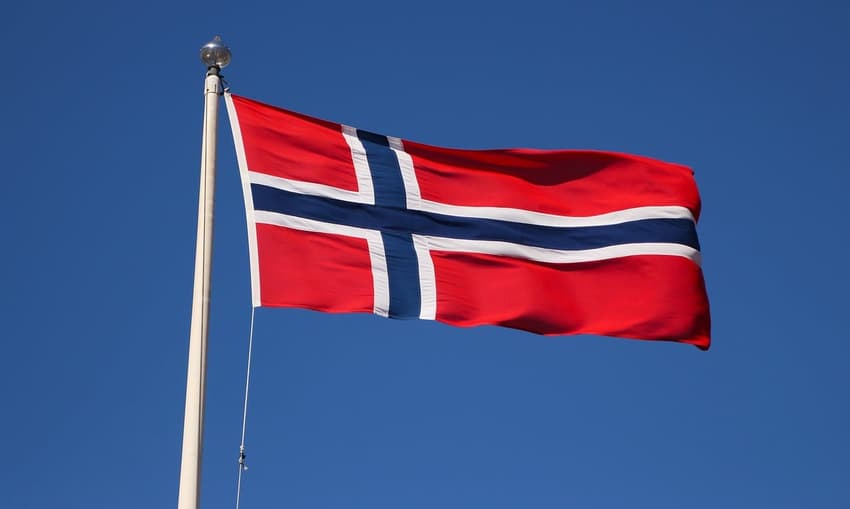'Swiss wave': Why do rich Norwegians flee to Switzerland?

A phenomenon called the ‘Sveits-bølg’ (‘Swiss Wave’) is underway, involving Norway and Switzerland. What exactly is it and how does it affect both countries?
Although not geographically close, Switzerland and Norway have much in common.
For one, having both voted to stay out of the European Union, the two nations belong (along with Iceland and Liechtenstein) to the European Free Trade Association (EFTA), giving them the right of free movement within the EU — and each other.
There is also another ‘common bond’ the two countries share: both are high-income and affluent nations.
But this is where the similarities end and significant differences begin — especially when it comes to taxes.
To say that Switzerland’s tax rate is lower than Norway’s is an understatement. The federal tax rate in Switzerland amounts to 11.5 percent, with a maximum combined cantonal and municipal rate of approximately 36 percent.
In Norway, on the other hand, the income tax rate is 22 percent, with rates for highest earners exceeding 50 percent.
The reason for this disparity between the two wealthy countries is that Norway (like other Scandinavian nations) needs the maximum amount of tax revenue to ensure a broad scope of public services — including healthcare — while in Switzerland this is not the case.
Additionally, Norway's government under Jonas Gahr Störe increased taxes on the wealthy in 2022, raising the maximum wealth rate from 1.0 percent to 1.1 percent. While this hike may not look like much on paper, it amounts to a lot of money if you have billions.

A view of Zug, Switzerland, which is a magnet for the wealthy. Photo by Peter Wormstetter on Unsplash
This is in addition to various other tax increases, including the wealth tax, according to Swiss media reports.
The latter increased by 0.4 percent for individuals with assets of over 20 million Norwegian kroner (around 1.7 million francs) or over 40 million (around 3.4 million francs) for couples.
There is also an increase in the tax rate on dividends and capital gains from shares from 35.2 to 37.8 percent.
And that, in a nutshell, explains the growing Sveits-bølg trend.
Norwegian ‘tax evaders’
Since the tax hikes, 48 rich Norwegians have moved to Switzerland, including billionaires Kjell Inge Rökke, Caroline Hagen Kjos, Svein Stöle, and Jörgen Dahl, among others.
This may not seem like a huge number (and hardly a wave), but it is a big increase when compared to only two Norwegians who settled in Switzerland in January 2020.
Norway’s loss is clearly Switzerland’s gain.
According to Norwegian newspaper Dagens Næringsliv, with Rökke's move alone, the country will lose an estimated 175 million Norwegian kroner (almost 15 million francs) in annual tax revenue.
Rökke now lives in Lugano, while others have settled in Zurich, Zug, and Lucerne.
Thomas Scherrer, spokesperson for Lucerne, told NZZ newspaper that the additional tax money from Norwegian newcomers is already planned in the budget for new cultural events and infrastructure projects in the city.
The Swedes as well
While more and more wealthy Norwegians are settling in Switzerland, affluent people from Sweden have flocked to the Alpine nation as well over the years, for the same reason — to escape high taxes in their home country.
Among them were IKEA founder Ingvar Kamprad, who lived in Vaud, as well as his compatriot, Frederik Paulsen, owner of Ferring Pharmaceuticals, who also calls Vaud his home.
Comments
See Also
Although not geographically close, Switzerland and Norway have much in common.
For one, having both voted to stay out of the European Union, the two nations belong (along with Iceland and Liechtenstein) to the European Free Trade Association (EFTA), giving them the right of free movement within the EU — and each other.
There is also another ‘common bond’ the two countries share: both are high-income and affluent nations.
But this is where the similarities end and significant differences begin — especially when it comes to taxes.
To say that Switzerland’s tax rate is lower than Norway’s is an understatement. The federal tax rate in Switzerland amounts to 11.5 percent, with a maximum combined cantonal and municipal rate of approximately 36 percent.
In Norway, on the other hand, the income tax rate is 22 percent, with rates for highest earners exceeding 50 percent.
The reason for this disparity between the two wealthy countries is that Norway (like other Scandinavian nations) needs the maximum amount of tax revenue to ensure a broad scope of public services — including healthcare — while in Switzerland this is not the case.
Additionally, Norway's government under Jonas Gahr Störe increased taxes on the wealthy in 2022, raising the maximum wealth rate from 1.0 percent to 1.1 percent. While this hike may not look like much on paper, it amounts to a lot of money if you have billions.

This is in addition to various other tax increases, including the wealth tax, according to Swiss media reports.
The latter increased by 0.4 percent for individuals with assets of over 20 million Norwegian kroner (around 1.7 million francs) or over 40 million (around 3.4 million francs) for couples.
There is also an increase in the tax rate on dividends and capital gains from shares from 35.2 to 37.8 percent.
And that, in a nutshell, explains the growing Sveits-bølg trend.
Norwegian ‘tax evaders’
Since the tax hikes, 48 rich Norwegians have moved to Switzerland, including billionaires Kjell Inge Rökke, Caroline Hagen Kjos, Svein Stöle, and Jörgen Dahl, among others.
This may not seem like a huge number (and hardly a wave), but it is a big increase when compared to only two Norwegians who settled in Switzerland in January 2020.
Norway’s loss is clearly Switzerland’s gain.
According to Norwegian newspaper Dagens Næringsliv, with Rökke's move alone, the country will lose an estimated 175 million Norwegian kroner (almost 15 million francs) in annual tax revenue.
Rökke now lives in Lugano, while others have settled in Zurich, Zug, and Lucerne.
Thomas Scherrer, spokesperson for Lucerne, told NZZ newspaper that the additional tax money from Norwegian newcomers is already planned in the budget for new cultural events and infrastructure projects in the city.
The Swedes as well
While more and more wealthy Norwegians are settling in Switzerland, affluent people from Sweden have flocked to the Alpine nation as well over the years, for the same reason — to escape high taxes in their home country.
Among them were IKEA founder Ingvar Kamprad, who lived in Vaud, as well as his compatriot, Frederik Paulsen, owner of Ferring Pharmaceuticals, who also calls Vaud his home.
Join the conversation in our comments section below. Share your own views and experience and if you have a question or suggestion for our journalists then email us at [email protected].
Please keep comments civil, constructive and on topic – and make sure to read our terms of use before getting involved.
Please log in here to leave a comment.